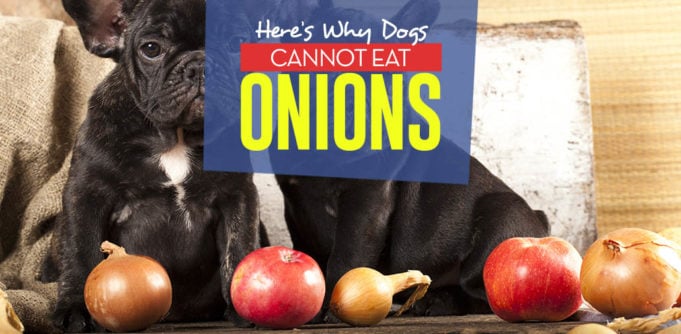Onions are a commonly used vegetable added to nearly every meal out there, from salads to hamburgers to soup. This pungent plant adds flavor to meals and is packed with nutrients. For people, onions provide a multitude of health benefits. But can dogs eat onions too, or are onions bad for dogs?
If you've been wondering, “can I give my dog onions,” the answer is NO – onions are toxic to dogs and you should never feed this vegetable to them, not even in small amounts. A known toxin in onions will cause serious health issues in dogs.
In this article, we'll discuss more about the effects of onions on dogs, can dogs eat onions in any amount, are onions bad for dogs and what are the reasons for this.
ALSO READ: 9 Superfoods for Dogs That Improve Health (According to Science)
What are onions?
Onions are vegetables in the allium family. They are considered a “super-healthy” food which contains phytonutrients which are extremely beneficial to humans. This vegetable is also an excellent source of many vitamins, antioxidants, flavonoids, sulphuric compounds, and minerals.
There are different sizes of onions. The most common three colors of onions are white, yellow and red that you can buy in any grocery store.
This is what onions look like:
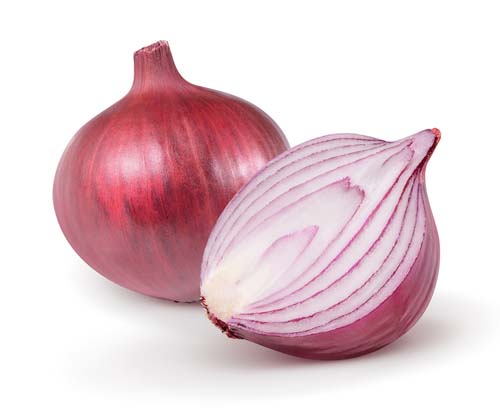
In humans, the flavonoids in onions have been linked to cancer prevention as well as a reduced risk of heart attack, stroke, and Parkinson’s disease. But can dogs eat onions and get the same benefits, or are onions bad for dogs at all times?
RELATED: Can Dogs Eat Pizza?
Onions for Dogs 101
Can Dogs Eat Onions?
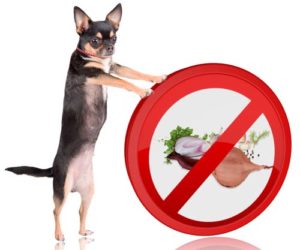 So, can dogs eat onions at all, at least in small amounts? No, your dog should never consume onions due to one particular toxin within onions.
So, can dogs eat onions at all, at least in small amounts? No, your dog should never consume onions due to one particular toxin within onions.
That toxin in onions is called Allyl propyl disulfide or N-propyl disulfide, and it causes a breakdown of red blood cells in the dog's body, which leads to secondary autoimmune hemolytic anemia. In some circumstances, this type of anemia can become life-threatening and fatal to dogs (Bryan 1971; PDF).
If we ever figured out how to use onions for dogs, it may benefit our canine companions in many ways. The relationship between onions and dogs can result in a ton of great health benefits, as many of those have been observed in humans.
Due to compounds in onions such as anthocyanins, quercetin, thiosulfinates and sulfur-compounds, as well as several vitamins and minerals like Vitamin C, Vitamin B6, Folate (B9) and Potassium, onions have been shown to have the following benefits in people and other animals, rats in particular (but not tested in dogs):
- Onions regulate blood sugar levels (1, 2, 3)
- Onions may prevent different types of cancer (4, 5, 6)
- Onions have anti-microbial effect (7, 8)
- Onions increase bone density and prevent deterioration (9, 10, 11)
It's clear that onions are great for human health, but unfortunately, all evidence points towards the fact that onions are bad for dogs and should never be consumed.
This subject has been previously studied extensively, and onions have been shown to be deadly not only to dogs but also cats, horses and monkeys (Salgado et al. 2011; PDF). Not even onion-flavored products are safe for dogs to consume.
These studies have shown that something called sulfides and sulfoxides are responsible in causing Heinz body anemia in dogs. This eventually leads to anemia in dogs, which can be difficult to treat and even fatal (Kovalkovicova et al. 2009).
How much onion is bad for dogs?
The best rule of thumb is to say that any amount of onion is bad for dogs. The same applies to any methods of preparation of onion; whether it's cooked onions, boiled or fried, all of them will still contain the dangerous toxin.
Also note that all parts of onion are dangerous for dogs, including the onion leaves, processed onion powder, flesh of the onion, and onion juice. It takes only 100 grams of an onion (roughly medium sized) per 20 kilograms of your dog’s weight to cause extremely toxic effects.
Remember that there are other vegetables in the onion family, all of which should be avoided and never fed to dogs. Below are the known types of onions and their family members that are dangerous to your dog:
- Onions
- Leeks
- Garlic (about five times as potent as onions)
- Scallions (or green onions)
- Garlic or onion powders
- Chives
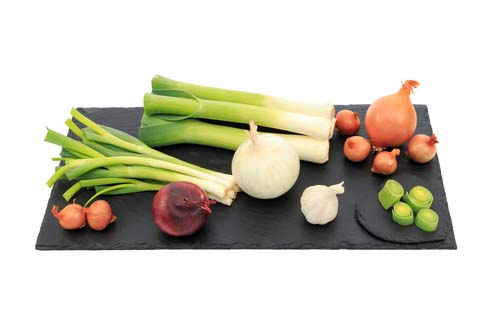
So are onions bad for dogs at all times? Absolutely. There is currently no evidence that any amount of onion is safe for dogs to eat. All discussion of benefits of onions for dogs is therefore void, since onions and dogs simply do not go together.
What is secondary autoimmune hemolytic anemia in dogs?
Autoimmune hemolytic anemia in dogs is a serious health disorder that occurs in primary and secondary means (Balch et al. 2007).
The primary form occurs when a dog’s immune system is not functioning properly. The secondary form (onion induced) happens in tandem with an underlying disease or reaction to a toxin in the body. Onions qualify as a toxin, and so the anemia caused by their ingestion would be a secondary form.
With this type of anemia, the N-propyl disulfide attaches to the oxygen molecules in your dog’s red blood cells and causes oxidative damage to them. The result is a reduced ability of the red blood cells to carry oxygen throughout the canine body.
The dog’s body is also fooled into believing that the blood cells are invasive, foreign entities, and it attacks them, basically destroying its own body. Hemolytic anemia then occurs as the body destroys its red blood cells.
There are no benefits of onions for dogs.
Can dogs eat onions and reap some of the benefits when fed in very small amounts. The answer is No. The damage that the N-propyl disulfide toxin causes in dogs far outweighs any possible nutritional benefits that onions offer. Therefore, there are no possible benefit and reason to feed onions to dogs.
RELATED: Can Dogs Eat Macadamia Nuts?
7 Potential Side Effects of Onions for Dogs
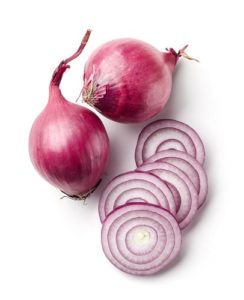 Are onions bad for dogs and if so, what are the potential side effects? As discussed above, the most common result of feeding dogs onions is anemia, which has been observed in numerous studies. However, other possible anemia-related and unrelated health problems and symptoms may occur when combining onions and dogs.
Are onions bad for dogs and if so, what are the potential side effects? As discussed above, the most common result of feeding dogs onions is anemia, which has been observed in numerous studies. However, other possible anemia-related and unrelated health problems and symptoms may occur when combining onions and dogs.
1. Excessive salivation (ptyalism).
Although dogs are well-known as droolers, excessive salivation signals that something is very wrong. Often ptyalism occurs because the dog is in too much pain to swallow or is unable to swallow. Toxin ingestion of any part of the onion family can cause this side effect to occur.
2. Rapid heartbeat (tachycardia).
A normal heart rate for dogs is between 70 – 120 beats per minute. When a dog suffers from a rapid heartbeat, that rate can be elevated to 140 beats per minute or higher. With onion toxicity, the rapid heartbeat is considered a ventricular tachycardia because of its association with anemia.
3. Dog's pale or bluish gums.
The anemia brought on by the onion poisoning will also result in very pale, white, or blue gums. The color reflects the reduced levels of oxygen reaching the organs and body tissues and is cause for concern. Very pale to white gums means you should take your dog to a veterinarian immediately.
4. Gastrointestinal distress in dogs.
Ingesting onions can cause significant stomach upset in your dog, including vomiting, diarrhea, loss of appetite, and severe abdominal pains. Diarrhea in dogs may also be a result of other health problems which may or may not have been induced by feeding dogs onions.
5. Excessive panting (tachypnea).
While panting is a normal canine respiratory reaction to heat, exhaustion, or physical activity, excessive panting, or tachypnea, is cause for concern. Dogs typically take anywhere from 10 to 30 breaths a minute depending on breed and size. If your dog ingests onions and develops anemia, excessive panting will be a symptom.
6. Dog's reddish urine.
Reddish urine is a sign that the onion toxicity has led to anemia. Specifically, the hemoglobin proteins in the blood have been destroyed, and anemia will shortly follow. Bloody urine or bloody stool in dogs may be signs of other related health problems as well which may or may not have been caused by ingestion of onions.
7. Fainting, weakness, or collapse
The anemia brought on by the onion toxicosis can cause your dog to suffer from weakness and difficulty walking. Fainting and collapsing are also possible side effects of this disease.
ALSO READ: 10 Foods Dogs Should Not Eat
My Dog Ate Onions. What Should I Do?
 If your dog has eaten an onion, there are a couple of steps that you should take to resolve the situation. If you know that the dog has just eaten the onion, you can take the first step yourself before calling your vet – induce vomiting in your dog.
If your dog has eaten an onion, there are a couple of steps that you should take to resolve the situation. If you know that the dog has just eaten the onion, you can take the first step yourself before calling your vet – induce vomiting in your dog.
Next, call up your veterinarian or pet poison line. Similarly, if the onion has been recently eaten, the veterinarian may have you induce vomiting at home or may ask you to immediately bring the dog in to give activated charcoal to encourage your dog to throw up the toxic onion. The charcoal will reduce the absorption of the toxin into the gastrointestinal tract.
Lastly, you will need to keep a close eye on your dog for any signs of anemia. If severe anemia develops, your dog may need to be hospitalized for some time to receive supplemental oxygen or even a blood transfusion. Once the bone marrow can produce an adequate amount of red blood cells, your dog will be on the road to recovery.
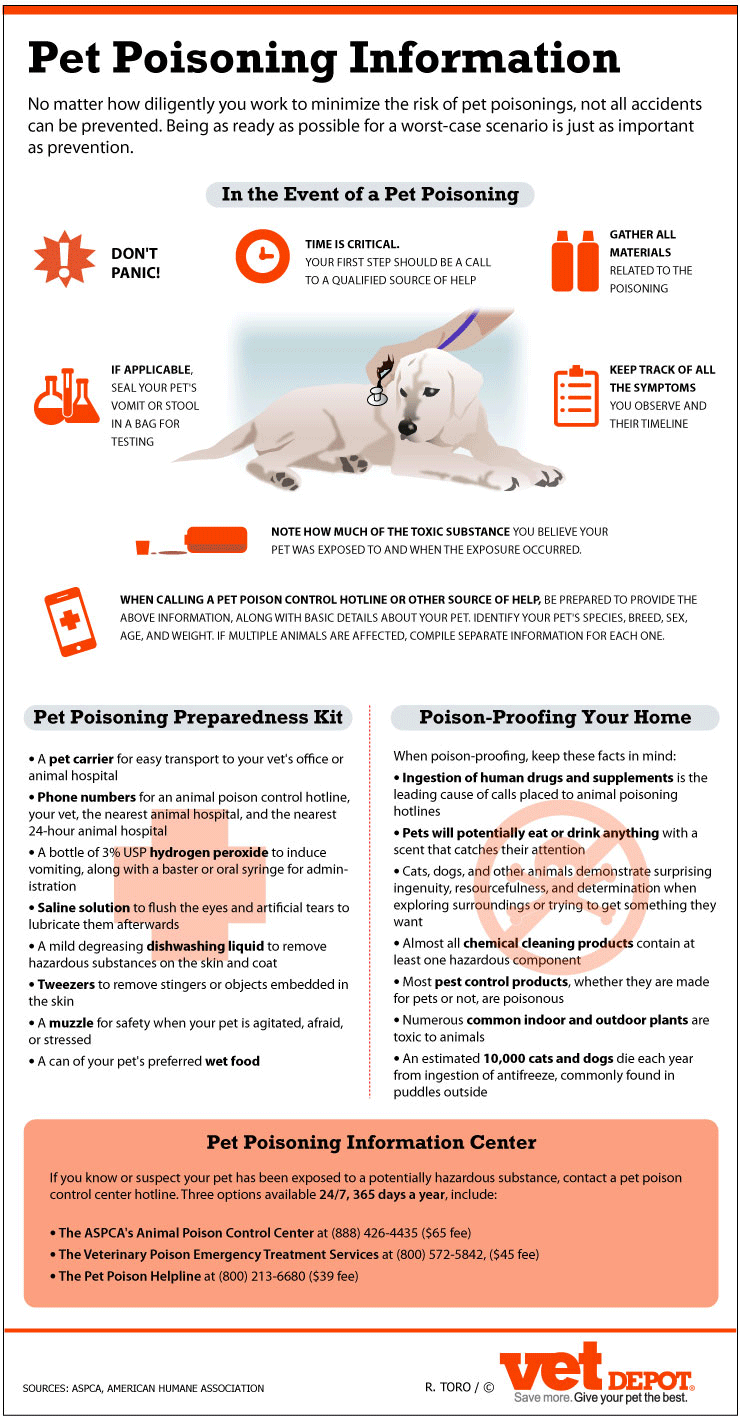
Summary
Can Dogs Eat Onions?
 In conclusion, can dogs eat onions in small amounts, or are onions bad for dogs at all times and in any amount? The fact is that dogs should not ingest onions of any kind or form, in any amount and for any reason. The toxicosis that will occur is physically devastating to your dog and may result in the dog's death.
In conclusion, can dogs eat onions in small amounts, or are onions bad for dogs at all times and in any amount? The fact is that dogs should not ingest onions of any kind or form, in any amount and for any reason. The toxicosis that will occur is physically devastating to your dog and may result in the dog's death.
Just like with toxicosis related to grapes/raisins in dogs, prevention is critical in this situation. Make sure to keep onions or food containing onions out of reach of your dog. Consider giving your dog vegetables and fruits that are safe and nutritional, like blueberries or pumpkin, and steer your canine clear of onions or any vegetable in the onion family.
READ NEXT: 4 Most Dangerous Ingredients in Dog Foods (According to Science)


